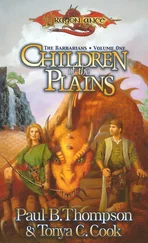Emmuska Orczy - A Bride of the Plains
Здесь есть возможность читать онлайн «Emmuska Orczy - A Bride of the Plains» — ознакомительный отрывок электронной книги совершенно бесплатно, а после прочтения отрывка купить полную версию. В некоторых случаях можно слушать аудио, скачать через торрент в формате fb2 и присутствует краткое содержание. Жанр: foreign_prose, foreign_language, на английском языке. Описание произведения, (предисловие) а так же отзывы посетителей доступны на портале библиотеки ЛибКат.
- Название:A Bride of the Plains
- Автор:
- Жанр:
- Год:неизвестен
- ISBN:нет данных
- Рейтинг книги:4 / 5. Голосов: 1
-
Избранное:Добавить в избранное
- Отзывы:
-
Ваша оценка:
- 80
- 1
- 2
- 3
- 4
- 5
A Bride of the Plains: краткое содержание, описание и аннотация
Предлагаем к чтению аннотацию, описание, краткое содержание или предисловие (зависит от того, что написал сам автор книги «A Bride of the Plains»). Если вы не нашли необходимую информацию о книге — напишите в комментариях, мы постараемся отыскать её.
A Bride of the Plains — читать онлайн ознакомительный отрывок
Ниже представлен текст книги, разбитый по страницам. Система сохранения места последней прочитанной страницы, позволяет с удобством читать онлайн бесплатно книгу «A Bride of the Plains», без необходимости каждый раз заново искать на чём Вы остановились. Поставьте закладку, и сможете в любой момент перейти на страницу, на которой закончили чтение.
Интервал:
Закладка:
"And I will fetch my future wife in a style befitting her new position, you may be sure of that," he said, and brought his clenched fist down upon the table with a crash, so that pots and pans rattled upon the hearth and started the paralytic from his torpor.
Then he threw his head back and began to talk still more arrogantly and defiantly than he had done hitherto.
"Forty-eight oxen," he said, "shall fetch her in six carts! Aye! even though she has not one stick of furniture wherewith to endow her future husband. Forty-eight oxen, I tell you, Irma néni! Never has there been such a procession seen in Marosfalva! But Erös Béla is the richest man in the Commune," he added, with an aggressive laugh, "and don't you forget it."
But the allusion to Elsa's poverty and his own riches had exasperated the old woman.
"With all your riches," she retorted, in her turn, with a sneer, "you had to court Elsa for many years before she accepted you."
"And probably she would not have accepted me at all if you had not bullied and worried her, and ordered her to say 'Yes' to me," he rejoined dryly.
"Children must obey their parents," she said, "it is the law of God."
"A law which you, for one, apply to your own advantage, eh, Irma néni?"
"Have you any cause for complaint?"
"Oh, no! Elsa's obedience has served me well. And though I dare say," he added, suddenly casting a sullen look upon the young girl, "she has not much love for me now, she will do her duty by me as my wife, and love will follow in the natural course of things."
Elsa had taken no part in this wordy warfare between her mother and her future husband. It seemed almost as if she had not heard a word of it. No doubt her ears were trained by now no longer to heed these squabbles. She had drawn a low stool close to the invalid's chair, and sitting near him with her hand resting on his knee, she was whispering and talking animatedly to him, telling him all the gossip of the village, recounting to him every small event of the afternoon and of the morning: Pater Bonifácius' sermon, the behaviour of the choir boys, Patkós Emma's new kerchief; when the stock of gossip gave out she began to sing to him, in a low, sweet voice, one of those innumerable folk-songs so dear to every Hungarian peasant's heart.
Irma intercepted the look which Béla cast upon his fiancée. She, too, turned and looked at her daughter, and seeing her there, sitting at the feet of that miserable wreck of humanity whom she called "father!" ministering to him, for all the world like the angels around the dying saints, a swift look of pity softened for a moment the mother's hard and pinched face.
"You cannot expect the girl to have much love for you now," she said, once more turning a vicious glance upon her future son-in-law; "your mode of courtship was not very tender, you will admit."
"I don't believe in all that silly love-making," he rejoined roughly, "it is good enough for the loutish peasants of the alföld (lowlands); they are sentimental and stupid: an educated man does not make use of a lot of twaddle when he woos the woman of his choice."
"All men act very much in the same way when they are in love," said Irma sententiously. "But I don't believe that you are really in love with Elsa."
He shrugged his shoulders, and laughed, a short, sarcastic, almost cruel laugh.
"Perhaps not," he said. "But I want her for my wife all the same."
"Only because she is the noted beauty of the countryside, and because half the village wanted her."
"Precisely," he said with a sneer; "there was a good deal of bidding for Elsa, eh, Irma néni? So you elected to give her to the highest bidder."
"You had been courting her longer than anybody," rejoined Irma, who this time chose to ignore his taunt.
"And I would have won her sooner – on my own – even without your help, if it had not been for that accursed Andor."
"Well! he is dead now, anyway. All doubts, I suppose, are at rest on that point."
"There are a few fools still left in the village who maintain that he will turn up some day."
"We all hope he will, because of Lakatos Pál. The poor man is fretting himself into his grave, since he has realized that when he dies his money and land must all go to the Government."
"He can sell his land and distribute his money while he lives," retorted Béla; "but you won't catch him doing that – the old miser."
"Can't anything more be done? – about Andor, I mean."
"Of course not," he said impatiently; "everything that could be done has been done. It's no use going on having rows by post with the War Office about the proofs of a man's death who has been food for worms these past two years."
"Well! you know, Béla, people here are not satisfied about those proofs. I, for one, never held with those who would not believe in Andor's death; there are plenty of folk in the village – and Pater Bonifácius is one of them – who swear that he will come home one of these days – perhaps when Pali bácsi is dead. And then he would find himself the richest man in the Commune," she added, not without a point of malice, "richer even than you, my good Béla."
"Hold your tongue, you old fool!" broke in Béla savagely, as once more the sinister leer which hovered round his sightless eye was turned toward Elsa.
"Didn't I say that I, for one, never believed that rubbish?" retorted Irma sullenly; "and haven't I preached to her about it these past two years? But you needn't be afraid," she added, as she turned once more to her stewing-pot, "she didn't hear what I said. When she talks or sings to her father you might shoot off a cannon – she wouldn't hear it. You may say what you like just now, Béla, she'll not listen."
"Oho!" said Béla, even as a curious expression of obstinacy, not unmixed with cruelty, crept into his colourless face, "you seem to forget, Irma néni, that the rest of Elsa's life will have to be spent in listening to me. We'll soon see about that."
"Elsa!" he called peremptorily.
Then, as indeed the girl appeared not to hear, but went on softly crooning and singing to the helpless invalid like a mother to its babe, the young man worked himself up into a passion of fury. The veins in his pale forehead and temples swelled up visibly, the glitter in his one eye became more cruel and more menacing, finally he brought his clenched fist once more crashing down upon the table, even while he rose to his feet, as if to give fuller meaning to his future marital authority.
"Elsa!" he shouted once more, hoarsely. "Elsa, do you hear what I say?"
CHAPTER VI
The girl thus roughly apostrophized turned slowly round. She seemed neither hurt nor even surprised at the young man's exhibition of temper. In her blue eyes there was a strange look – one which had lately been habitual to her, but which neither her mother nor Béla were able to interpret: it was a look which conveyed the thought of resignation or indifference or both, but also one which was peculiarly lifeless, as of a soul who had touched the cold hand of despair.
Far be it from me to seek complexity in so simple a soul as was that of this young Hungarian peasant girl. Elsa Kapus had no thought of self-analysis; complicated sex and soul problems did not exist for her; she would never have dreamed of searching the deep-down emotions of her heart and of dragging them out for her mind to scrutinize. The morbid modern craze for intricate and composite emotions was not likely to reach an out-of-the-way Hungarian village that slept peacefully on the banks of the sluggish Maros, cradled in the immensity of the plain.
Elsa had loved Lakatos Andor – the handsome, ardent young lover whose impetuous courtship of her five years ago had carried her on the wings of Icarus to a region so full of brightness and of sunlight that it was no wonder that the wings – which had appeared god-like – turned out to be ephemeral and brittle after all, and that she was soon precipitated back and down into the ordinary sea of everyday life.
Читать дальшеИнтервал:
Закладка:
Похожие книги на «A Bride of the Plains»
Представляем Вашему вниманию похожие книги на «A Bride of the Plains» списком для выбора. Мы отобрали схожую по названию и смыслу литературу в надежде предоставить читателям больше вариантов отыскать новые, интересные, ещё непрочитанные произведения.
Обсуждение, отзывы о книге «A Bride of the Plains» и просто собственные мнения читателей. Оставьте ваши комментарии, напишите, что Вы думаете о произведении, его смысле или главных героях. Укажите что конкретно понравилось, а что нет, и почему Вы так считаете.












